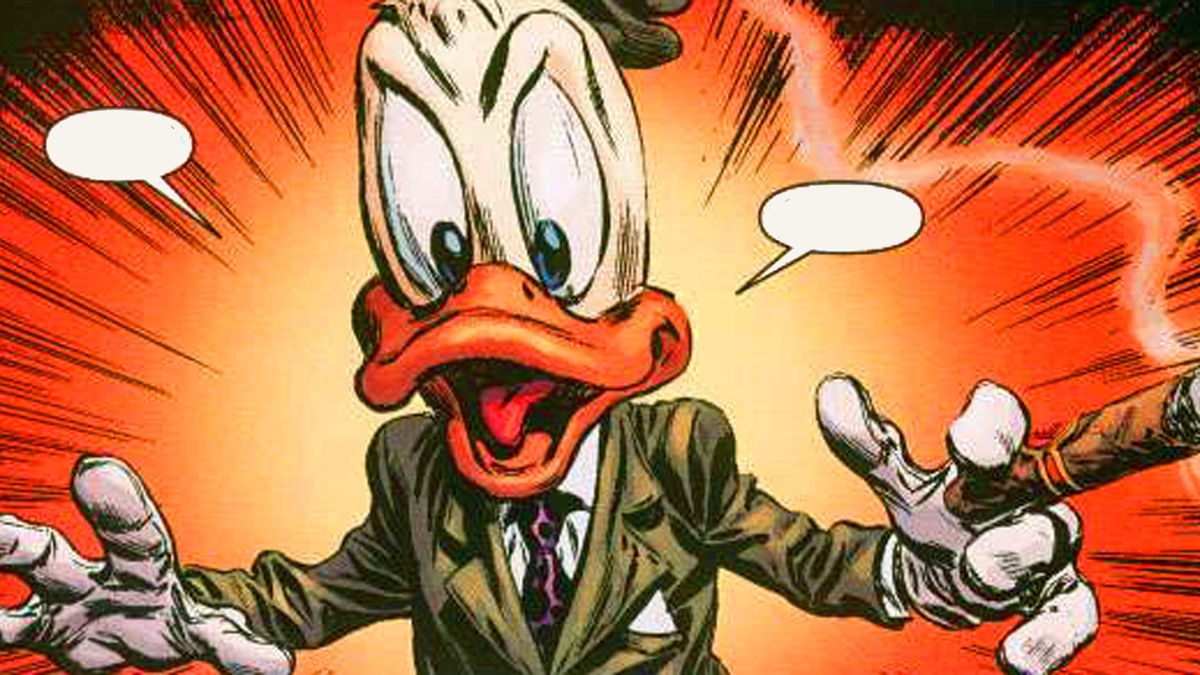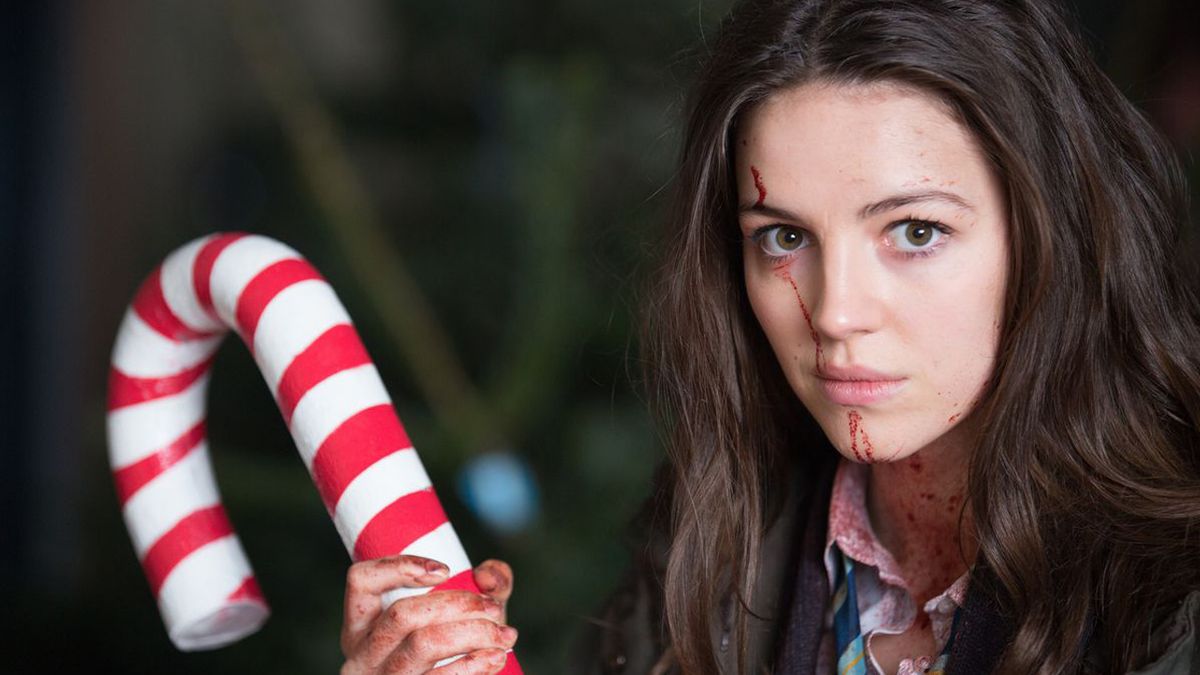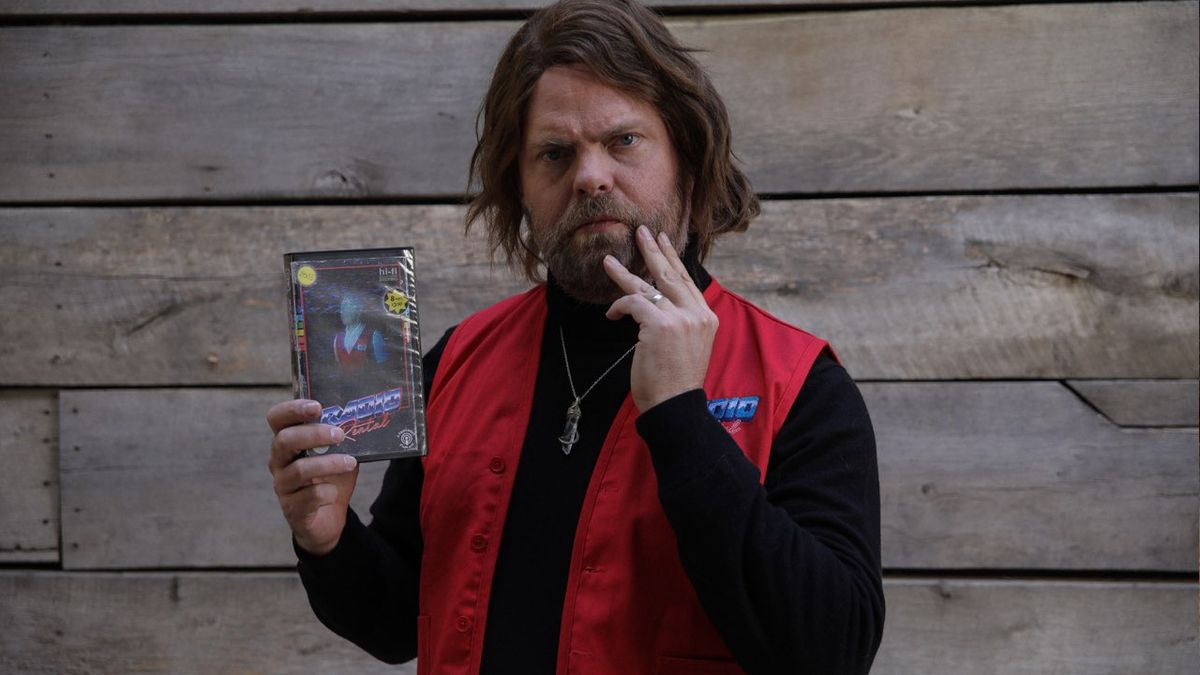.

(opens in new tab)
Both Capps and Murphy are keen to point out the darkening, more adult tone of the series was pretty much an organic development rather than a calculated change. It’s reflected in a subtle change to the opening narration. Camelot’s destiny now lies with a “young man” rather than a “boy”.
“Yes,” says Murphy, “that’s a response to what you’re seeing on screen. Colin is a long way from the innocent character he was in series one. He’s grown as a character. Merlin is very much a man now, and we need to reflect that.”
The series are also becoming more serialised, with more plots, as the years go by.
“We have gradually increased that more over the four seasons and that was always really our plan,” agrees Murphy. “I think when you bring in these big adventure franchises, you’re quite conscious that you need the stories-of-the-week to dominate to begin with. Particularly when you’re going for a very young audience, I think that’s important.
“But we always intended, as we got closer to the legend, to lift the serial element,” he continues. “I think partly, as well, we are now going out in an older, more sophisticated slot, we can afford to be a little more serialised. It enables us to do richer stories.”
“I think also, as the series progresses, your audience warms to the characters,” adds Capps. “They become more involved with them. Therefore you can be slightly more serialised with it. But it’s still very important to us that each week is a self-contained story – a mini action/adventure movie.”
Arthur’s Destiny
Part of the darkening tone meant that they could certainly shock an audience used to a perhaps more cosy tone formerly. “We’re very pleased, dramatically, with the way Uther’s death played out,” says Murphy, “because that was a tricky one. It was something that we knew we had to do, but we wanted to do it in a way that propelled us forward. And that was also not a terrible, downbeat moment in the series, but the beginning of the story of King Arthur, rather than Prince Arthur. We’re both pleased with how that was written by Howard Overman, and shot by Alice Troughton. I think she did a superb job. I think it was a very difficult episode to handle.”
Murphy also feels that the production team is learning a new visual vocabulary in how to tell a Merlin episode as the series progresses.
“I think what’s interesting – and I’ve never done this in television before – is that a lot of our episodes we have very, very few words on a page of script now. We’re not a dialogue-driven show. We’ve become extremely visually driven. And particularly those first two episodes of series four were astonishingly visually-driven. And that’s a challenge for us. It mean we have to tell stories in a more cinematic way. That’s been a great experience in series four, and we’re pleased that we can do it. That we’re given the freedom to do it by the BBC. And it does, I think, make for a very interesting little cinema experience for the audience on a Saturday night.”
They’re also keen to point out that the move to 35 mill wasn’t just a case of changing the cameras and lenses and carrying on as before.
“No, it has a bigger effect than that in all sorts of subtle ways,” says Murphy. “It changes our discipline on set. We have to shoot with more discipline because film stock is an expensive item. But that’s actually a very healthy thing. It makes people rehearse more. It makes the adrenaline flow when you go for a take greater. And that’s had a subtle effect on the programme.”
Capps expands on one of those subtle effects: “Because there’s so much more detail on film, it changes the performances in small ways. You’re more aware of the actors’ eyes and what the actors are thinking. That was something that really struck Julian and I when we were watching the first few days of shoots – the way it changed the actors’ faces and their expressions. It suddenly made it look more like a movie.”
Tough Shoot
But the new shooting regime has proved “punishing” for the series two leads, Colin Morgan (Merlin) and Bradley James (Arthur).
“It’s tough for them,” says Murphy. “It really is a relentless shoot. We shoot for 32 weeks and Colin especially doesn’t really stop. The only way we can shoot the sort of material that we do, on a television schedule, is with multiple units. And that often means three units a day. And poor old Colin is often in all three in some form or another. But I think what they have both responded to is more and more adult and sophisticated material. I think that’s given them a new lease of life and some real energy. The more you challenge them as actors the better they respond.”
“I think that’s what make the scripting process really enjoyable for us,” agrees Capps. “We can throw anything at the actors. I think this year has been great for us because we’ve not only pushed the ambition of the show visually, but where we’ve taken the actors in the emotional stories as well. All the four main characters are being pushed to interesting places emotionally. And they’ve all stepped up to the plate and produced terrific performances.”
They won’t reveal much more about the second half of the series other than what little they gave away here , but Murphy does hint, “There’s a very surprising end for Morgana.”
“She dies,” chips in Capps.
Since we can’t believe he’d give this away, we assume he’s teasing us?
“Maybe I’m double bluffing,” he suggests.
Uh-oh, he’s going all Moffat on us.

(opens in new tab)
 Game News Video Games Reviews & News
Game News Video Games Reviews & News



